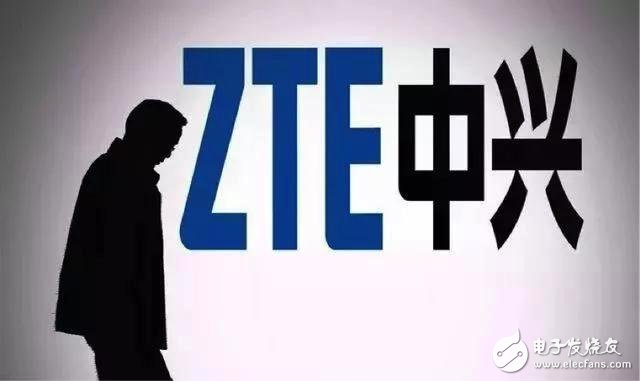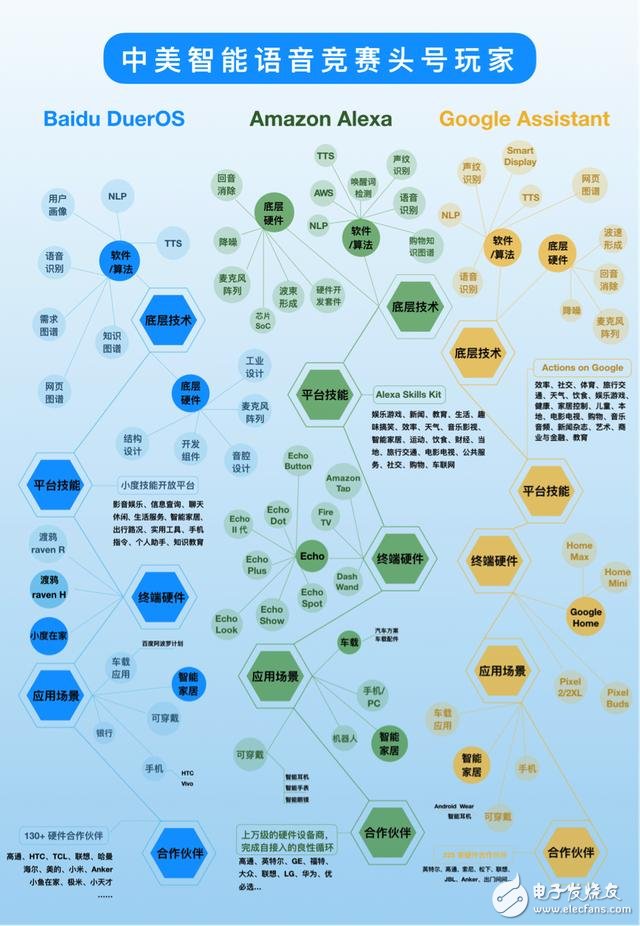The "ban" that can't be prevented is that the people all over the country are paying attention to the "lack of core" of ZTE and even China's science and technology. The United States issued a seven-year component ban on ZTE, and ZTE ushered in the biggest dark moment since its establishment.
We are familiar with the most usual judgmental perspective of the ZTE incident: you are a global communications giant with a serious "core disease" that makes it easy for people to hold their throats.

ZTE’s coreless pain has caused unprecedented attention because this may be just a microcosm of the current Chinese technology industry. China is the world's largest integrated circuit market, but its main products are heavily dependent on imports. Since 2013, China has imported more than 200 billion US dollars of chips each year, and last year it reached a historical peak of 260.1 billion US dollars.
It’s not just a chip. Take the smart phone that has the closest relationship with the public. For example, in this highly modular building, the selection of parts from a long list of supply chains is a patchwork, which is what most domestic mobile phones have to make. Choice: The chip is Qualcomm, the operating system is Google, the screen is Sharp and Samsung, the camera module is Sony...Because the free upstream market is full of uncertainty, once there is a deviation in a certain link in the supply chain, The consequences are often difficult to end.
Of course, the ZTE incident should not only be excessively pessimistic, but more should be the change brought about by reflection. There is still room for manoeuvre, and the future is even more limitless. Under the tide of AI, if the Chinese technology industry wants to “backfireâ€, the possibility of regaining a game is greater than ever.

Sino-US AI showdown: AI voice operating system goes hand in hand on their respective tracks
We must admit that the technical barriers in the chip market are difficult to be broken in a short period of time. It is conservatively estimated that in the CPU and GPU fields, it may take 5-10 years for China to catch up with the US, and it is even more unlikely that Intel will become a super giant. But what is gratifying is that we have more advantageous areas, from the government to the enterprise. At present, the attitude is quite unified. I hope that China will achieve cornering overtaking in emerging fields such as artificial intelligence, Internet of Things and cloud computing.
This is not difficult to understand. Americans certainly feel that China's "new four major inventions" give the people great welfare, but they do not produce some kind of "taboo" because they are not the key to the future. The basic consensus reached in the industry is that if you want to pick the technology that America is most worried about China, it may be artificial intelligence. In fact, artificial intelligence is also the fastest independent innovation field in China's current “input-output ratioâ€.
Last year, the New York Times interviewed a large number of US government officials and Silicon Valley elites and concluded that China and the United States are two rivals that are evenly matched in the latest round of artificial intelligence competition. The Wall Street Journal recently analyzed that although the United States has also invested huge resources in the AI ​​field, in this global competition, China has a social soil that fosters artificial intelligence and temperate, occupying three major advantages: a large number of software engineers. Huge data of 750 million netizens and strong support from government departments.
From the technical logic, as Gartner research vice president Sheng Linghai said in an interview with the financial news, the core competitiveness of artificial intelligence is data and algorithms, chip barriers are not so large, the US blockade of Chinese chips will not hinder Chinese labor. Intelligent development, and "according to the development strategy of the new generation of artificial intelligence in the country, artificial intelligence chips have their use in security, military, video artificial intelligence algorithms, etc., and they are just needed, orders do not have to worry, as long as the technology is excellent, it can completely replace the international Giant."
From the perspective of industry landing, China does have a good hand. BAT is also vigorously deploying AI. Baidu has aggressively proposed the All in strategy, and even more than once said that its independent innovation of the interactive artificial intelligence operating system DuerOS has to be "Android in the era of artificial intelligence" and in just one year. More time, business progress and technological innovation are quite fast.
In addition to technological innovation, the operating system is the "life gate"
The most overlooked point is that compared with chip sanctions, the most smashing pressure on ZTE in the United States is actually the Android operating system. Reuters pointed out that after the US banned domestic companies from selling components to ZTE, ZTE’s mobile devices may no longer be able to use Google’s Android system. If the chip still has other alternatives, then in the field of mobile Internet-based operating systems, because the pioneering advantages of network effects are too obvious, it is difficult to find alternatives.
The same is true for the AI ​​field. In the rapidly emerging intelligent voice industry, Amazon Echo series products can quickly occupy more than half of the US smart speakers, and even in the entry into all hardware devices, the deep reason is the success, recognition and use of its intelligent voice system Alexa. Another strong rival in the US market is Google. The strong entry of Google's voice operating system Assistant has also made the US smart voice market competitive. Of course, this is in the American context. In China, if the emerging intelligent voice human-computer interaction method needs to rise rapidly, the complex Chinese domestic environment may be the strongest barrier and umbrella for Chinese enterprises.

For a voice operating system that grows enough to fight Amazon Alexa and Google Assistant, Baidu DuerOS is confident and confident. Baidu is undoubtedly the most powerful voice in the Chinese market. As the world's largest Chinese search engine, Baidu has billions of user requests, billions of knowledge map entities, and voice. Calling and audio data, hundreds of billions of images and web pages are enough to feed DuerOS tuning and learning progress.
In terms of technology, Baidu has deep practical experience in deep learning, natural language processing technology, multi-round dialogue technology, search technology, etc. Its speech recognition accuracy rate reaches 97%, and deep speech recognition system Deep Speech2 is selected as the top ten breakthrough in MIT 2016. Sex technology, in order to better deepen the voice wake-up, also wholly acquired the artificial intelligence creation enterprise KITT.AI focusing on voice wake-up and natural language understanding, and opened up the core capabilities of smart device voice wake-up and natural language processing, technical strength More useless worry.
Of course, if the data is good or the technology is strong, it needs the feedback and training of the current environment to better tuned. This is where DuerOS has advantages with Alexa.
Open empowerment accelerates China's intelligent voice operating system to land faster than Silicon Valley
LinkedIn co-founder Reed Hoffman has repeatedly sighed that "the speed of Silicon Valley is very fast, but China is faster than Silicon Valley." Take the most aggressive Baidu DuerOS in China as an example. Since its inception in July 2017, its partners have quickly rushed to more than 160, and the cumulative number of questions answered by the platform has exceeded 2.4 billion. In terms of equipment activation, from the data known to the outside world, as of January 2018, the number of smart device activations equipped with DuerOS has exceeded 50 million, and the number of monthly active devices has exceeded 10 million. These data are also ahead of the intelligent voice industry at home and abroad. of.

Not only the landing speed, but also the development of Amazon Alexa in the United States, DuerOS really did the right market in China and took the right path. Beginning in March, Baidu internally integrated the establishment of the SLG department to accelerate the deployment of smart homes; DuerOS has successively reached cooperation with TCL, Haier, Midea, Skyworth and other industry giants. It is foreseeable that hundreds of millions of devices will fall into the future. In addition to cooperation, investment in home appliance brands is also no shortage of Baidu's figure, and successively will be the TV brands such as Extreme Rice and Skyworth Cool Open; the joint small fish will release the first smart video speaker in China at home; On April 23, Baidu DuerOS's artificial intelligence car system Dongfeng Fengshen WindLink3.0 was officially released in Beijing. Its extremely high hardware configuration, minimal UI experience, fast AI voice and ultimate application ecology are four highlights. Let WindLink 3.0 become the industry leader. The speed of action is unprecedented. In the field of artificial intelligence, the snowball effect of local independent innovation technology giants has begun to emerge.
Although the government's support for AI is unprecedented, after the ZTE incident, I believe many people still hope that in the core technology areas where China is most likely to overtake, the government can help local enterprises from the strategic level. (Know, In the same year, Silicon Valley was supported by US policy. After decades of continuous investment, it became the Silicon Valley of today. For example, policies such as encouraging artificial intelligence open platforms were introduced to more effectively gather industrial resources, and support independent innovations such as Baidu in the AI ​​field. Technology companies. As Li Yanhong said, “The influence of the open platform in the artificial intelligence era will be greater and greater, because no one has enough data, only when more data is brought together, algorithms are good, and technology is good. More influence. The state should encourage all companies, especially large companies, to open up platforms for artificial intelligence technology."
In short, the ZTE incident is like a mirror. When you see the current dilemma, it also reflects the common sense: in the world of technology, although “takenism†can be seen everywhere, if there is anything that can be called a barrier, the biggest possibility is The core technology itself. In order to achieve a network power, it is necessary to strengthen independent innovation and promote technological breakthroughs, otherwise it will be subject to people, and the future Chinese AI will not let the people down.
KW4-Double Pole Miniature Micro Switch
Features
â—† Small Compact Size,Global safety approvals
â—† Variety of lerers
â—† Multi circuit function
â—† Long life & high reliability.
â—† Wide Range of wires Terminals.
â—†Variety of actuator and terminals
â—†Customized Designs
â—†Widely used in household appliances, electric force, telecommunications, machine tool, vessel, textile, printing, Mining machine, Mustic Instrument, etc.
Double Pole Micro Switch,Double Pole Miniature Micro Switch,Double Pole Subminiature Micro Switch,Double Pole Double Throw Micro Switch
Ningbo Jialin Electronics Co.,Ltd , https://www.donghai-switch.com